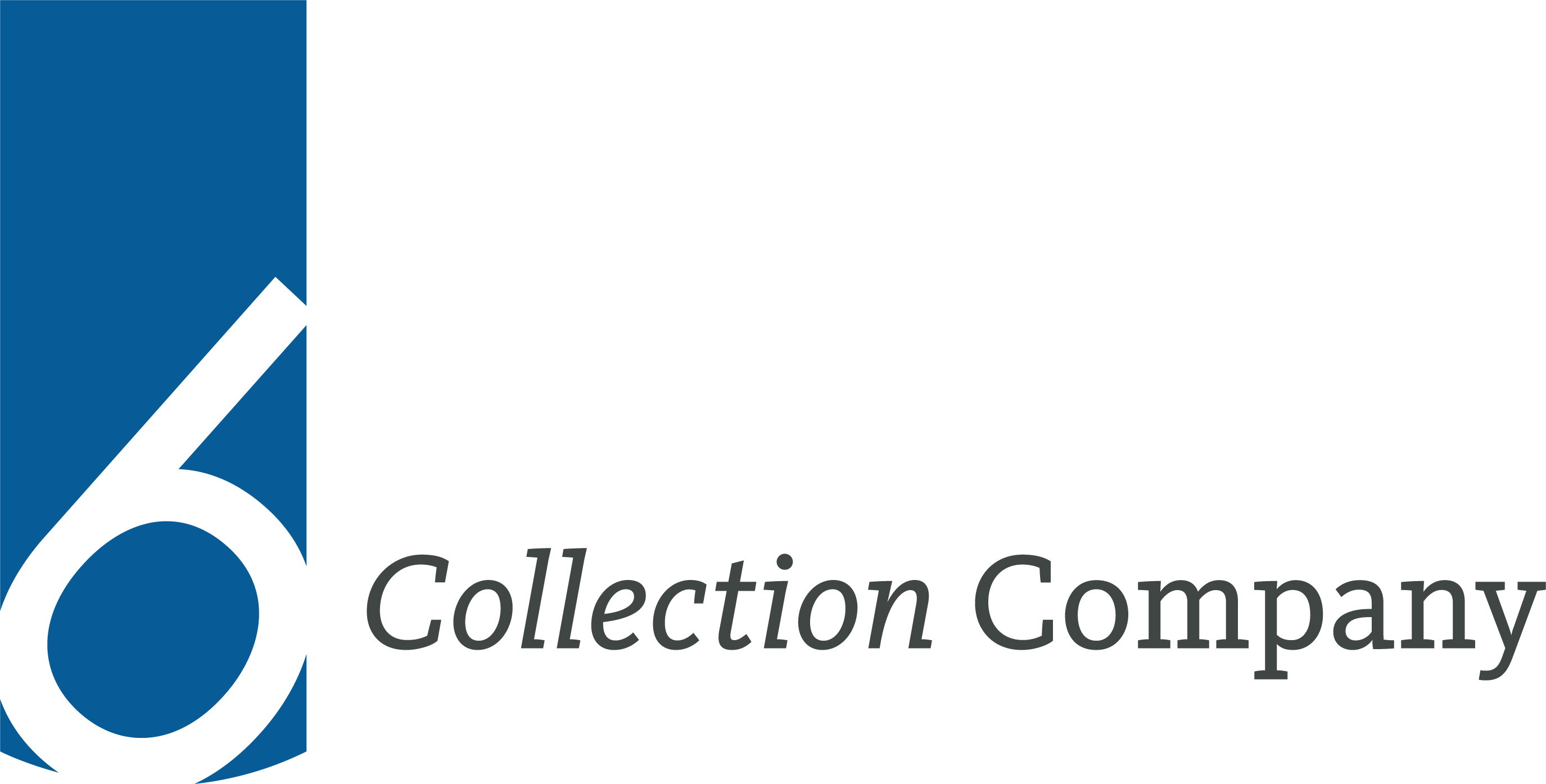Debt Collection Norway: quickly recover your money claim
Are you doing business in Norway and do you have a customer who doesn’t pay their bill? Dealing with a debtor is always unpleasant, but it becomes even more of a headache when they are located abroad. You probably don’t speak Norwegian and are likely unfamiliar with the Norwegian legal system. How can you still collect your outstanding invoice?
Collection Company specializes in international debt collection. We work together with a fast network of local debt collection specialists such as lawyers and bailiffs. Whether your debtor is located in Oslo or above the Arctic Circle, we ensure that you get what you are entitled to.
- Nationwide coverage in Norway
- One dedicated English speaking contact
- Proven track record
- Tailor-made services for each case
- Expert advice and a transparent process
- 24/7 online access
Specialized in debt collection in Norway
If you have a customer in Norway who fails to pay an invoice, it can be challenging and time-consuming to collect your money. The business culture and laws in Norway are likely different from those in your own country. Besides that, you may face a language barrier because you don’t speak Norwegian.
That’s why our international debt collection experts are here to assist you. Our debt collection agents know everything about Norwegian laws and regulations and work together with a network of local specialists, such as bailiffs and attorneys.
Curious about the chances of success of your case? Request a free consultation.
Transfer your claim now
Do you have a Norwegian customer who hasn't paid their invoice? Fill in your details and one of our international debt collection specialists will contact you to discuss your case.

Why choose Collection Company for debt recovery in Norway?
- Global coverage
- One dedicated English speaking contact
- Experienced debt collection specialists with knowledge of Norwegian legislation
- Broad network with local lawyers and bailiffs
- Seamless connection from extrajudicial to judicial action
- Effective local approach
- 24/7 tracking through your own Online Cockpit
How does debt collection work in Norway?
Just like in most other countries, the debt recovery process in Norway is divided into two phases: extrajudicial and judicial debt collection. During the extrajudicial or amicable phase, our aim is to collect your invoice without going to court. 9 out of 10 times we’ll manage to recover the debt with an amicable procedure, but sometimes that fails. In such cases, we will take legal action against your defaulter.
Because Collection Company works together with Norwegian debt collection specialists and lawyers, we can handle both the extrajudicial and judicial process for you.
- Upload your invoice online
- We'll start your case
- We'll start with the debt collection process
- Together we decide the best strategy for collecting your debts
- Monitor the status of your case 24/7
- Any questions? Your personal accountmanager will answer them all!
- Your invoice is payed
Extrajudicial debt collection in Norway
If you have an unpaid claim that remains unsettled, our experts in Norwegian debt collection are ready to assist you. We typically initiate an extrajudicial procedure first.
This means that we send reminders and notices to your debtor. At the same time we’ll attempt to get in touch with your debtor by phone, e-mail or WhatsApp. By communicating in Norwegian, your debtor cannot claim they have not understood the payment reminders and notices.
If necessary, we’ll contact your debtor 16 times over a three-week period, demanding payment. Most debtors settle during this phase. Typically, you will have your money within three weeks.
If not, we increase the pressure by threatening legal action. This is usually enough to persuade your debtor to comply, because they will have to pay for the costs of the legal procedure if they lose the case.
Judicial debt collection
If we are dealing with a persistent Norwegian defaulter, we will initiate legal proceedings (after consultation with you). Norway is known for its robust and efficient legal system. During the legal procedure, we will rely on our network of local lawyers and attorneys. Together with our own international debt collection specialists, they will represent your interests.
Before we can initiate legal proceedings in Norway, we must first send a final written payment reminder to your debtor. This writing should include:
- A final notice with a payment term of 14 days
- Name of the creditor
- Specification of the debt (e.g. interest, date, cost price)
- A warning that non-payment will result in additional legal costs
Uncontested claims
If your debtor has not indicated why they have not paid the bill, and there is no timely response after the summons to appear in court, your claim will be considered an undisputed claim. In that case, a Norwegian enforcement officer (namsmann) can issue a payment order. This payment order is equivalent to a court judgment. The enforcement officer can then seize the assets of your defaulter to collect your claim.
Contested claims
Did you send an invoice that is being disputed by your debtor? Since June 1, 2020, there is a special small claims procedure in Norway for claims under 250,000 Norwegian Kroner (NOK), called Småkravsprosess.
To use this procedure, we must file a settlement complaint on the website of the The Collaboration the Conciliation Board for Council and Bailiffs (Samarbeidsutvalget for Forliksråd og Namsmenn). This committee was established to resolve disputes between parties and keep them out of court. With the consent of both parties, they can make a binding decision on the matter.
If it appears that the case is not suitable for the committee’s handling, the committee will terminate the mediation and the procedure will continue in court.
Contested claims exceeding 250,000 NOK
If the debt is disputed and exceeds 250,000 Norwegian Kroner, or if the Conciliation Board has determined that the case is not suitable for mediation, only the court can make a ruling.
In Norway the lawsuit starts with a preliminary written procedure. During this procedure, the judge examines whether the opposing party has responded and may request additional evidence.
Following this phase, there is a written round where both parties can submit evidence. The parties can then substantiate their positions at a hearing. Subsequently, the judge will make a ruling.
If the judgment shows that you, as the creditor, are in the right, then your debtor must pay. If they fail to do so, we can enforce the judgment on your behalf through a bailiff in Norway.
How does the debt collection process work in Norway?
Step 1
First of all, we will send a payment reminder (påkrav) to your debtor. This reminder is necessary as it provides you with written evidence that you have requested payment.
Step 2
When the debtor doesn’t pay after the payment reminder, we will send a second reminder (purring). This is the final reminder we send before initiating legal proceedings.
Step 3
If at the due date we still have not received the payment, we will take legal action to enforce the claim. This can be done by having a bailiff seize assets. In Norway, the plaintiff must have a tvangsgrunnlag for this. This can be, for example, a judgment (court decision) or a decision from the mediation committee (Forliksrådet).
Bailiffs (enforcement officers)
Once we have a judgment from the court or a binding decision from the Conciliation Board, but your debtor still refuses to pay, we can enforce the judgment with the help of a Norwegian bailiff (namsmann). Bailiffs in Norway have special rights to collect outstanding debts. For example, they can force your debtor to settle the claim through attachments and are authorized to organize auctions to sell seized items.
Attachment (utleggsforretning) in Norway
If the case is not contested and/or you have a favorable ruling, we can have the bailiff enforce the judgment. The bailiff can seize various assets such as vehicles, real estate, bank accounts, and income (wage garnishment).
Wage garnishment is the most severe measure. With this, the bailiff compels the employer to withhold a certain portion of the debtor’s salary. This money is then transferred to the creditor through the bailiff.
Interim measures in Norway
We can secure money or goods in anticipation of legal proceedings by imposing an interim attachment. For example, a bank account can be frozen, preventing your debtor from accessing the funds.
To impose interim measures, we need to request permission from the district court of your debtor (or the court in the district where your debtor has assets) in Norway. At least, we must be able to demonstrate that there is a claim and that there are grounds to fear that your debtor may intend to evade payment of that claim.
Usually, the court will schedule a hearing. Only in cases of urgency, the request for interim measures will be granted without a hearing. Subsequently, the bailiff can secure the accounts or goods.
Through an interim attachment, your debtor cannot dispose of their assets as long as they are under attachment. The assets remain under attachment until there is a judgment (or the case is terminated). The attachment will also be lifted if the creditor fails to commence legal proceedings in time or if the debtor presents new evidence that the attachment is unjustified.
Interim attachments in Norway do not hold up against bankruptcy of your debtor and claims from other creditors.
Bankruptcy (Konkurser)
In some cases your debtor will claim to be unable to meet his payment obligations. If that is the case we can file for bankruptcy. For this, we need to initiate a bankruptcy procedure (konkursbehandling).
One condition to start this procedure is that the debtor is insolvent. This means that he no longer has sufficient assets and therefore cannot fulfill any payment obligations. These payment problems must have been ongoing for some time.
We submit the petition for bankruptcy to the court in the district where your debtor has his residential address (private) or his business address (corporate customer). The bankruptcy application must be sent by mail to the court in quadruplicate (with attachments). The court will review the application and schedule a hearing. During this hearing, it will be determined whether the bankruptcy will be declared. If this happens, the court will appoint a lawyer as trustee.
Initiating a bankruptcy procedure costs 59,950 Norwegian Kroner (NOK), which is equivalent to just under 2,600 euros. Companies and employees are exempt from this payment.
What is the role of the trustee?
The trustee collects money from unpaid claims and sells the debtor’s assets. Afterwards, the trustee distributes the funds among the creditors. Once the curator’s work is done, the judge issues a ruling, thereby concluding the procedure.
Advice about your case?
Submit your contact details and one of our debt collection specialists will contact you immediately!

Legal areas of debt collection in Norway
We assist our clients with various types of claims abroad. Whether you are dealing with a non-paying business customer, a rental dispute, a payment dispute over a purchase, or damages incurred in Norway, our specialists can help you.
We can assist with payment disputes in the following jurisdictions:
- Construction Law
- Renting and leasing
- Buying and selling
- Labor Law
- Agency Agreement
- Transportation
- Damages and wrongful acts
We work directly for clients, but also for intermediaries such as law firms and accounting firms.
Anything else we can help you with in Norway?
- Reliable advice on contracts and terms
- Credit information on companies in Norway
- Disputes regarding retention of title and right of reclamation
- Mediation in reaching private agreements and settlements
Directly start a debt collection in Norway?
Fill out our debt recovery registration form to submit your claim. Do you rather get personal advice from a debt collection specialist first? Submit your contact details and call us at 070 – 762 0330 or send us an email.
Why 40.000 customers tried our services
- The #1 collection company in the Netherlands and abroad
- Regional & local specialists
- Years of experience with international invoices
- Your own personal contact
- Extensive advice on the legal process
- Monitor the status of your case 24/7
Meet our specialized legal team
- Joost Konings LLMLaw expert
- May Leung LLMLaw expert
- Wesley Boeters LLMInterim lawyer

Free advice on debt collection in Norway?
Fill in your personal information and plan your free consult.

FAQ: Frequently Asked Questions about Norway debt collection
FAQ: What do we need to start a debt recovery in Norway?
Prior to commencing a debt collection procedure, we would like to receive certain documents from you. This includes copies of the contract, invoices, and a clear bank statement showing payments and credit notes that have been applied to the outstanding invoices.
We understand that you do not always have these documents. This is not a problem. Together with you, we will assess which documents and/or evidence are available.
We kindly request the following documents:
- Copy of the agreements, such as a contract, an email, a fax confirmation, or simply your summary of what has been agreed
- Copy of your invoices
- Copy of your reminders
- A copy of your general terms and conditions
- Any proof of delivery, if available
FAQ: What is the statute of limitations for claims in Norway?
A statute of limitations is a specific time frame in which legal proceedings have to be initiated. If you do not file your debt collection case in time your claim can no longer be enforced in court. This means that you no longer have the right to payment of the claim.
In Norway, the general limitation period is 3 years. This period starts when a creditor could first demand payment.
There are some exceptions, also known as special limitation periods. These special limitation periods apply to bank deposits, promissory notes, loans, pensions, maintenance contributions, recourse claims in case of joint liability, and recovery of damages.
FAQ: Is there a central database for debts in Norway?
There is a system in Norway where debts are centrally registered. This is done by specially designated private parties. Currently, these are Gjeldregistret and TietoEVRY.
Banks as well as other relevant parties such as bailiffs, have access to these debt registers. For example, we can use this information for a creditworthiness assessment.
Due to this method of debt registration, total debts in Norway have decreased by 8% in one year.
FAQ: Why not hire a debt collection agency in Norway?
Collection Company is not a Norwegian debt collection agency, but we can collect your debts in Norway. If you hire a local debt collection agency in Norway, you’ll probably have to communicate in Norwegian and fill out documents in Norwegian (or have them translated).
When you work together with Collection Company for debt collection in Norway, you’ll have one dedicated contact person. They coordinate the collection and communicate with local specialists.




